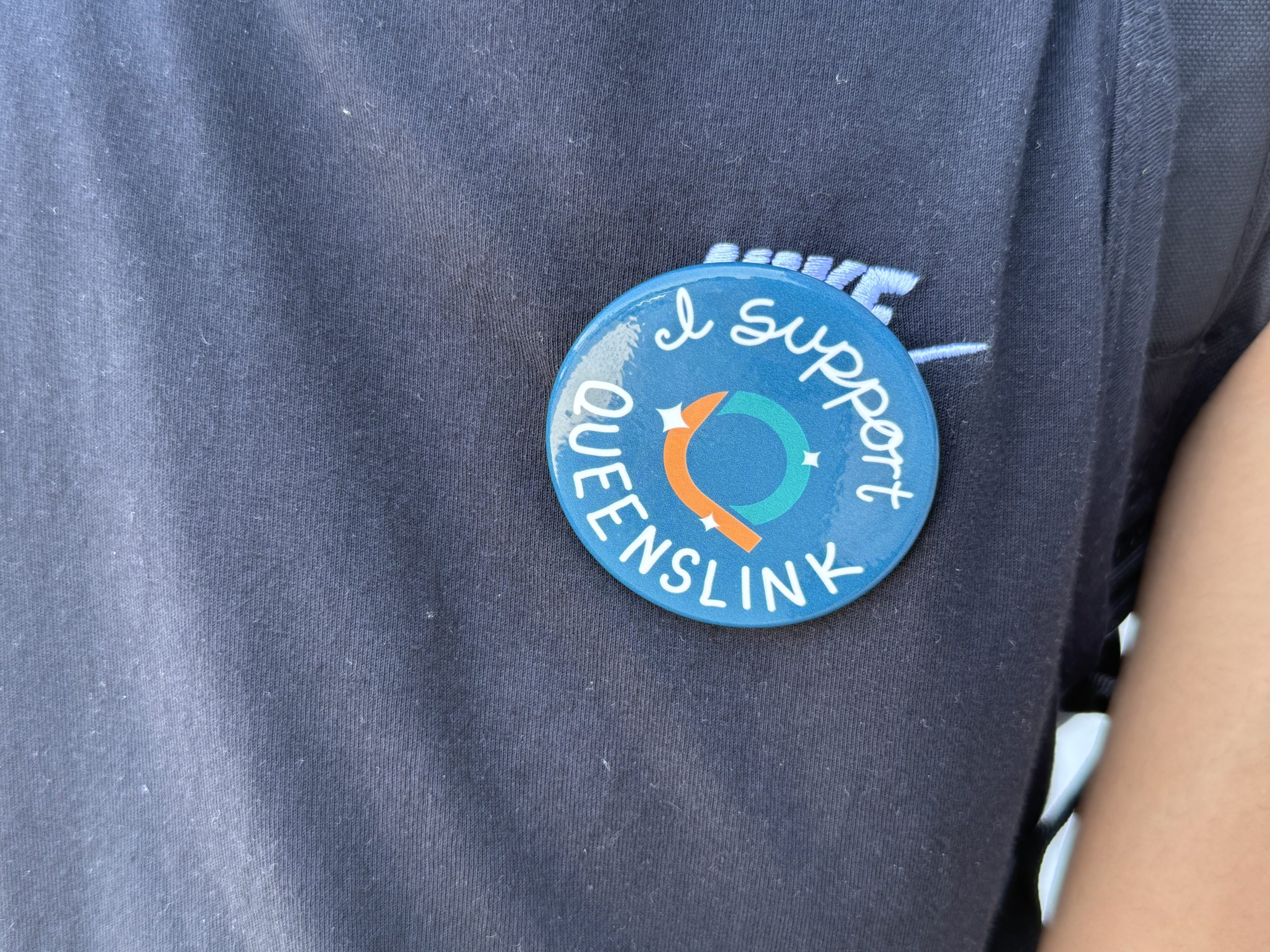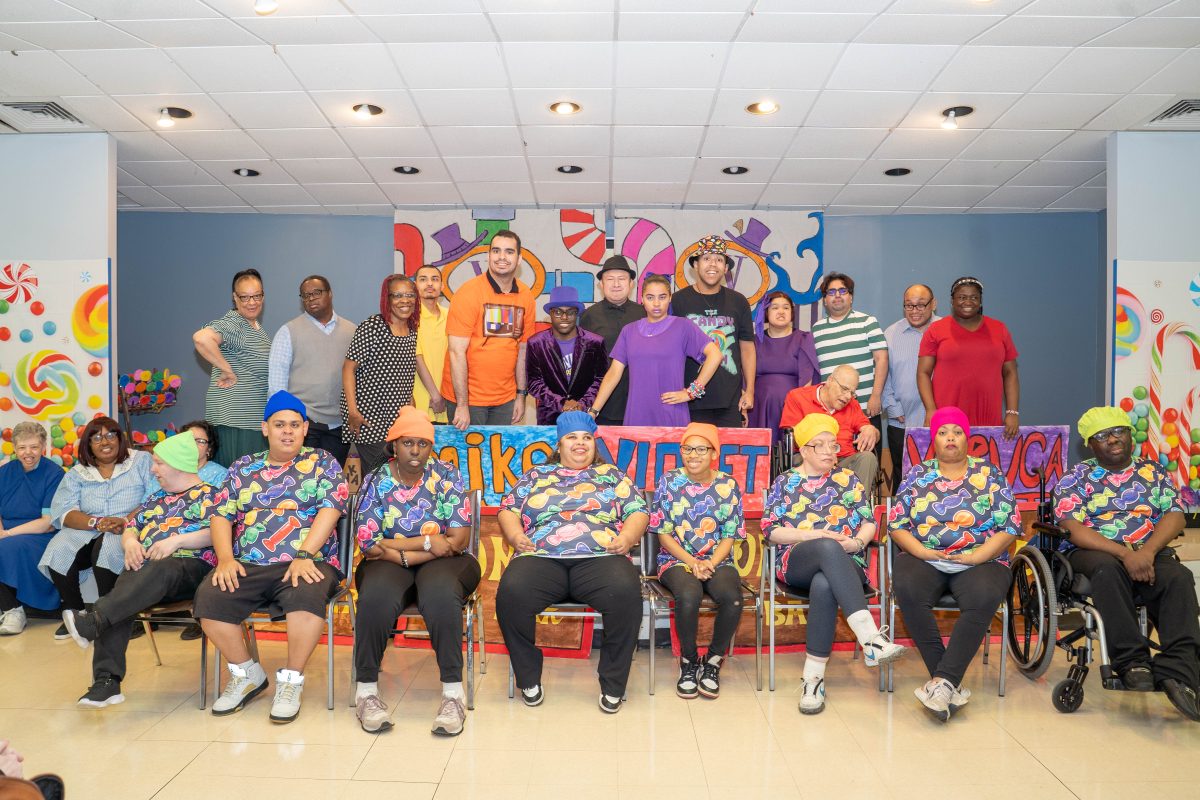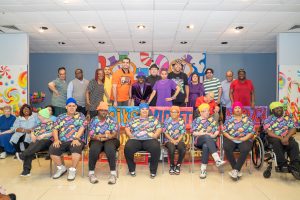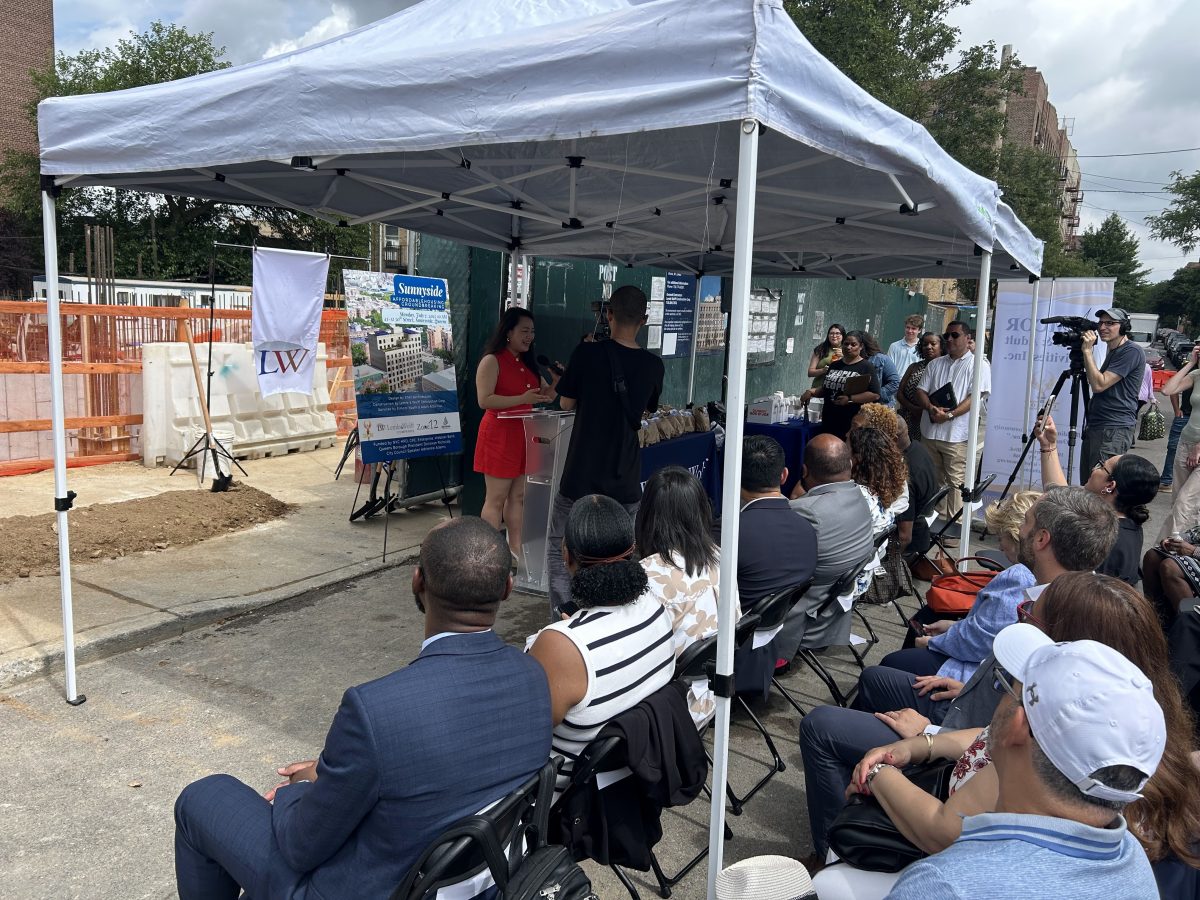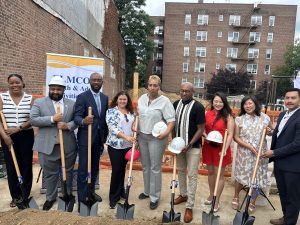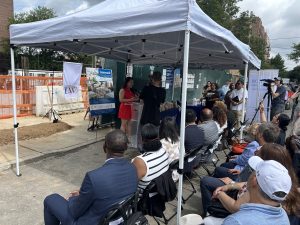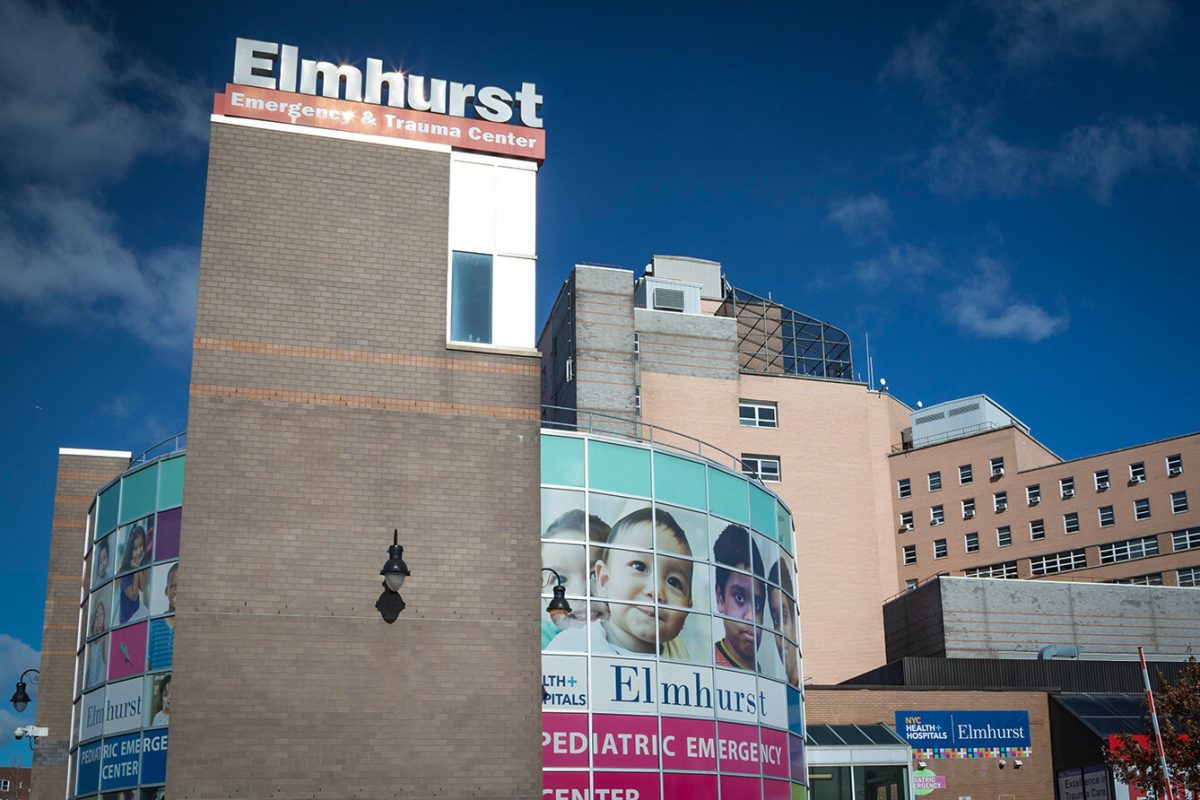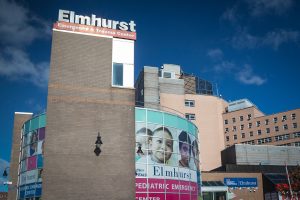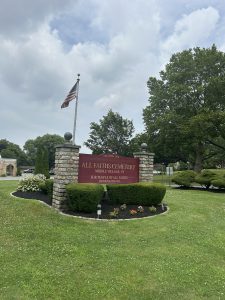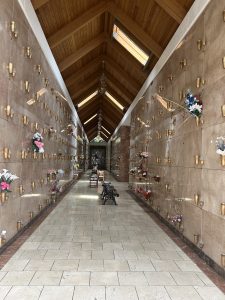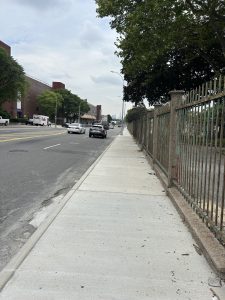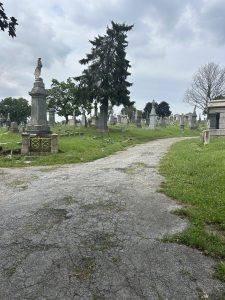
Extravagant stage settings with dramatic lighting at Phish concerts, MSG New Year’s Eve 2024 photo by Scott Harris
Phish will Add to Longtime Music & Tennis Tradition
By Michael Perlman
Forest Hills history will be taken to new heights when Phish comes to town, to the delight of everyone from longtime fans to fans-in-the-making, traveling from far and near. The stage of the historic horseshoe, arched colonnade, eagle-adorned Forest Hills Stadium, which offers premier sightlines and acoustics, as well as a balance of intimacy and monumentality, awaits Phish’s footsteps. The band’s distinctive jams, musical improvisation, and memorable harmonies will take place in a rare surviving outdoor venue, where an audience’s chorus under a crisp blue sky often transitions to a brilliant sunset and starlit sky, casting a relationship with lighting and special effects. After-parties are bound to be held at nearby restaurants centered around Station Square and Austin Street.
A two-day extravaganza on July 22 and July 23 at 6 PM will signify Phish’s first concert in Queens, nicknamed “The World’s Borough.” Forest Hills will feel like a storied destination on their 30-gig “Summer Tour 2025,” which began on June 20 in Manchester, New Hampshire, and concludes on September 21 in Hampton, Virginia. The band consolidates multiple genres, spanning experimental rock, jazz fusion, alternative rock, progressive rock, bluegrass, country, funk, reggae, and psychedelic rock. The repertoire of no two shows is predictable.

Danny Clinch photographing Phish in New York City on March 26, 2024.
Forest Hills Stadium became America’s first tennis stadium as of August 11, 1923. There is a native debate as to whether tennis placed Forest Hills on the map, or if Forest Hills Stadium placed tennis on the map. On a similar note, music came into a league of its own in New York, thanks to the Forest Hills Music Festival at the Stadium as of 1960, and placed Forest Hills into a neon lights league. Now Phish will be further diversifying the Stadium’s timeline of unique achievements.
Phish’s history originated in 1983 in the city of Burlington, Vermont. Today’s members are guitarist and primary lead vocalist Trey Anastasio, drummer Jon Fishman, keyboardist Page McConnell, and bassist Mike Gordon. Each member is a vocalist, and their music at large is co-written by lyricist Tom Marshall and Anastasio. An original guitarist was Jeff Holdsworth (along with Anastasio), who pursued other horizons as of 1986.
A series of firsts transpired on the Stadium’s hallowed grounds. Among the standouts were Maureen Connolly Brinker being the first woman to win a Grand Slam in 1953. This was also the U.S. Open’s birthplace. Since tennis was a segregated sport, racial color barriers were broken when Althea Gibson was the first African American to win a U.S. National Tennis title in 1957, and Arthur Ashe was the first African American man to achieve the U.S. Open title in 1968. Singles and National Championships, and the Davis Cup made history. The nearby storybook style Tudor clubhouse features an extensive tennis player “wall of fame” with portraits of Bill Tilden, Helen Jacobs, Rod Laver, John Newcombe, Andre Agassi, Billie Jean King, and John McEnroe.
The “who’s who” in music entertained fans from the 1960s into the mid-1980s, and briefly in the late 1990s. An extensive list includes “Ol’ Blue Eyes” Frank Sinatra, Simon & Garfunkel, Tony Bennett, Donna Summer, Bob Dylan, Barbra Streisand, “Peter, Paul and Mary,” The Rolling Stones, Stevie Wonder, Diana Ross, Ray Charles, Barry Manilow, Sammy Davis, Jr, Count Basie, and Trini Lopez. One of the most dramatic moments was The Beatles’ helicopter landing on grass courts before performing in 1964. The Stadium also became a cinematic backdrop of Alfred Hitchcock’s film, “Strangers on a Train” (1951) and “The Royal Tenenbaums” (2001).
Phish in NYC, 2024, Photo by Danny Clinch Photography
After the West Side Tennis Club faced financial challenges, an unoccupied Forest Hills Stadium, which resembled a Colosseum amidst lush greenery, was on the verge of being sold in 2010 for a condo. It underwent a rebirth after this columnist spearheaded a PR and preservation campaign, encompassing creative reuse and economic benefits to rescue an icon that was no match for the landfill, but rather a chapter of continued rackets and high notes. The Club rejected the redevelopment proposal. Then Mumford & Sons launched a new era of Stadium concerts with their concert on August 28, 2013. To this day, dynamic concert manager Mike Luba, a partner with Tiebreaker Productions, works around the clock year-round.
Since the Stadium’s rebirth, a miniscule percentage of the legends that graced and rocked its new stage consist of Bette Midler, The Village People, Ed Sheeran, Robert Plant, Santana, Hall & Oates, Tears For Fears, Roger Daltrey performing The Who’s “Tommy” with The New York Pops, Sutton Foster and Pink Martini with The New York Pops, Dolly Parton, Duran Duran, David Byrne, Tom Petty & The Heartbreakers with Peter Wolf, Van Morrison and Tom Jones, Jethro Tull, Zac Brown Band, Pitbull and T-Pain, Neil Young & Crazy Horse, and Hozier.
There is no shortage of bonding and creative opportunities when it comes to ecstatic Phish fans, who become an extended family. Brian Weinstein, who resides with his wife in Forest Hills since 2019, is the host of “Attendance Bias,” a popular Phish fans podcast: www.linktree.com/attendancebias
He discovered Phish in 1996 at age 13, and was a fan ever since. He reminisced the launch of his podcast during the pandemic. “At the time, there were a few good ones available for Phish, but none contained what I wanted to hear; stories from fans about their favorite shows. Phish’s summer tour was canceled, and I had no one to talk to about my favorite band. As I walked through Forest Park, I listened to a podcast on podcasting, polished my idea, got in touch with people who loved the idea of telling their favorite stories, and I launched the first episode in August 2020.”

1964 Music Festival poster, Courtesy of Michael Perlman
Weinstein feels the magic behind the Stadium can be attributed to its rich history. “It has seen athletic greatness, as well as some of the greatest musical artists of the past 100+ years. It feels modern, yet classic,” he said. Its quality as a music venue is another draw. “The concourse is wide and comfortable, the concessions are mostly local businesses, and the sound is outstanding in every seat.” As for Phish’s first gig at the Stadium, it is a dream come true for Weinstein among fans. “When I saw my first show at the Stadium in 2018 (David Byrne), I thought, ‘Phish would never play here; it’s too small, local, and intimate. Phish made its NYC home at Madison Square Garden, but they’re not big enough for Citi Field, so Queens seems out of the question.’ These will be special shows.”
Weinstein values Phish’s rapport, which is somehow stronger than mostly any other bands that he has seen live, considering that they play large arenas and stadiums. He also praises how they do not step on stage with a pre-determined setlist. He explained, “They communicate with the audience through their song choices, the styles of music they choose to play that night, and the pacing of the concert. The band rarely speaks directly to the audience, and yet an attentive fan can formulate an entire narrative from the show. As a fanbase, we are excellent listeners, and the band responds to the crowd’s enthusiasm and attention.”
Phish undoubtedly represents distinction. Weinstein continued, “They maintain their ‘cult’ status while simultaneously being able to draw 40,000 to a festival, or selling out four consecutive nights at MSG. They can do something as typical as playing a 22-gig summer tour, or they can play 13 nights at Madison Square Garden without once repeating a song. They have accomplished what extremely few other musical artists have; creating their world in tandem with their audience, and continuing to challenge themselves and their audience creatively for four decades, without settling for anything less than the best.”
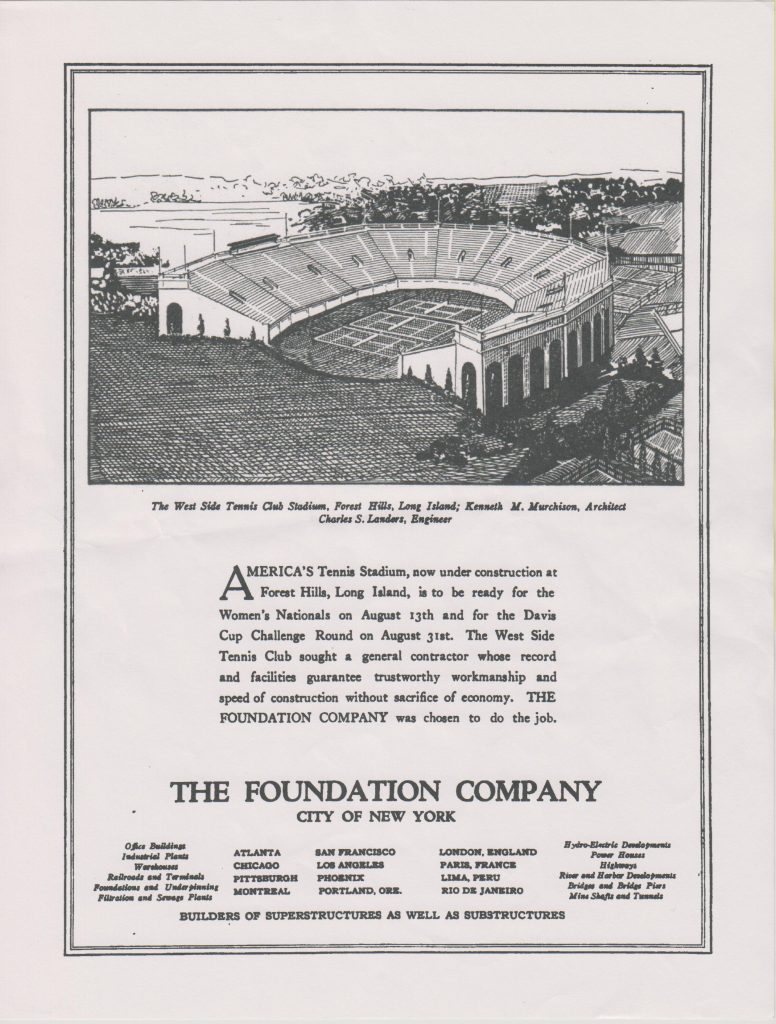
America’s Tennis Stadium ad, MIT’s The Technology Review, November 1922
Rego Park resident Patrick Owens, a fan for over 25 years, attended countless Phish concerts through his teens and twenties. “It is exciting that Phish will see our neighborhood. I hope they like it so much, they decide to move here,” said Owens, who embraces their jam band and is drawn to their psychedelic rock. “Like with the Grateful Dead, there is a pseudo-spiritual happy-go-lucky subculture that follows Phish. Their performances are typically enhanced by elaborate light shows.”
“Phish’s iconic jam band melodies usually have me twirling in whatever stadium or venue they’re at,” said Rego Park resident Lisa Hakim, who has been a fan since living in Arizona in the early 1990s. “The Forest Hills Stadium news takes me back to my college days.”
“Phish is a journey, musically and geographically, and I’m thrilled that everyone is traveling to this national gem in Forest Hills,” said Setauket, NY fan Tedd Kanakaris, who owns Sandpiper Wealth LLC, a financial planning and advisory group named after two Phish songs. He has likely attended 80 shows since August 1998.
Kanakaris explained a unique Phish culture, where longtime fans love to see them at various venues along tour, and the venues are consistently part of the show and that show’s history. “The band will often have a notable song and improvisational section/jam on a given night, and then we will forever refer to that specific performance as ‘The Tahoe Tweezer’ (played on 7/31/2013 at Lake Tahoe Outdoor Arena at Harveys in NV) or ‘Riverport Gin’ (played on 7/29/1998 at the Riverport Amphitheater in MO). The venues are hallowed grounds where history occurs, so there’s always our pilgrimage near and afar. They become meeting places; a temporary Phish metropolis, which also includes the town with its restaurants, hotels and Airbnbs.” He provided the analogy of a show to a keynote conference speaker, since much unfolds day and night.

Phish friends Gotta JiBrew Traveling Brewery Club, Top row, Tedd Kanakaris on left & Phish Lyricist Tom Marshall, 3rd person, & Musician Peter Cottone, bottom, 2nd person, played in jam bands with Tom in 1990s & is mentioned in Phish song ‘Wilson’
Throughout his upbringing, he would hop on the train to Manhattan from Port Jefferson, which meant passing by Forest Hills station. He would get glimpses of the Tudor-style Forest Hills Gardens and the unique Forest Hills Stadium. “I always wondered what that magical European oasis was. Years later, I sponsored a women’s challenger series tournament at WSTC, and finally saw the Stadium up close. I played in it, and while the echoes of our shots pinged around the decaying seats, I kept thinking, ‘The Beatles played here.’” He recalls the Stadium’s endangerment in 2010.
Fast-forward to 2025, and Nectar’s in Burlington, VT, a bar which hosted Phish’s earliest gig in 1984, is endangered due to an ongoing municipal construction project on Main Street, leading to its closure, at least for now. Kanakaris has high hopes that fans among preservationists will “save the day” along the lines of the Stadium campaign. Nectar’s seemed like a second home for Phish in the mid-1980s, since they would perform regularly, and even the band’s 1992 album, “A Picture of Nectar” is named in its honor. He explained, “When historical places close, much history dies alongside it, and when economics is at the root, cultural institutions are often replaced by commercial business opportunities. People can make a difference through learning and sharing with others that an important cultural institution has shut down. This builds the community that wishes to rescue it, followed by the donors that invest to make it a reality.”

Author Andy Smith in center among Phish fans at Mondegreen, 2024
“I’m so excited for this hometown show! I love it that Phish is playing a new venue, and is still interested in trying new things,” said Andy P. Smith, an author and longtime fan from Brooklyn. He wrote a book, “100 Things Phish Should Know & Do Before They Die” with co-author Jason Gershuny. “It was an amazing opportunity to fully immerse myself into the world of Phish, consisting of the history, the lore, the nuances of their performances across a 40-year career, and interviewing other fans, collaborating with illustrators and photographers,” said Smith. They were fortunate to release an updated second edition last year. “As a writer and a Phish fan, this is the intersection of my two largest passions, and it resonated with the fans. I’m proud to say that we’ve now sold over 10,000 copies.”
Smith can vividly relive his earliest Phish performance from when he was a teen in 1998, and is forever grateful to his mother, who drove him and three friends from Seattle to The Gorge. “It was truly a magical experience. While the band was playing, the sun was setting behind the stage. For the last minute of the sun descending behind the horizon, Fishman played a drum roll, and the whole crowd roared.” Now Forest Hills leaves much to be desired.
He references Phish as “the most generous band in the world.” “From a fan’s perspective, the more you invest in Phish, the more you’re rewarded. I met Trey for the first time this summer, and he was so kind and engaged in our conversation. It was an incredible experience to meet one of my heroes and be overjoyed,” said Smith.
In an elated manner, he asked, “What band plays from midnight to sunrise to ring in the new year in a swamp with 80,000 people? Even Mondegreen… What a rich experience! Phish doesn’t have to play multiple sets across multiple nights in an environment they build from the ground up to support 50,000 fans… The Baker’s Dozen? Thirteen shows without a single song repeated? It’s not that other bands don’t do that, but that other bands can’t. Phish is constantly pushing the envelope… Gamehendge on New Year’s?”
Jumping to Vermont, but universally serving fans in honor of Phish is resident Lauren Pinto, who tirelessly dedicates her time. “Girltour,” a collective of creative female friends was born in 2016, in response to encountering a male dominated scene. “We piece together tours with opportunities set up by others. We create and sell our merchandise on the road to cross-promote and support each other. It became a full-time gig for a number of us,” she said.
Pinto’s relationship with Phish began in 2011 while attending their gig at PNC Banks Arts Center in New Jersey. Reflecting upon the past 14 years, she attributes her nights seeing Phish to some of her best life moments. “I wasn’t an artist or creator before I started seeing Phish. I discovered this community, and learned from other amazing creators that I could be on tour and make a living. I owe everything to my predecessors and to Phish. Most of the people I know and love I met on the road. My life was saved by rock ‘n’ roll,” she said.
She feels inspired by Phish as a community conscious band. “They don’t just play a rock concert and leave. They make a positive impact wherever they go,” said Pinto. “I joined ‘Green Crew’ in 2013, a club of fans who pickup recycling after each concert. I joined volunteer efforts with ‘The WaterWheel Foundation.’ At each tour stop, they partner with a local foundation, raise funds, and participate. I painted NYC schools, bagged lunches, weeded community gardens, and blazed trails in whatever community we visit for that weekend.”

Some members of Girltour under a rainbow, Broomfield, CO, Courtney Westerkamp, Amanda Burgess, Sara Shabany, Lauren Pinto, Claire Christenson, Photo by Michelle Carnella
Fans were polled on their favorite Phish songs:
Brian Weinstein: “Glide” demonstrates their musical prowess juxtaposed with their trademark wordplay and silliness. “Tweezer” is their strongest improvisational song.
Tedd Kanakaris: “Sneaking Sally Through The Alley” ~ Phish famously performs covers, but given their improvisational nature, will make them their own with jam sections. It’s the first song that I heard Phish play, which sparked my interest in them.
Lauren Pinto: “Harry Hood” covers much range. It’s light and floating, and dark and grimy. It features crowd involvement with a sing-along. You can feel good!
Andy P. Smith: “The Squirming Coil” ~ The theme, melody, potential for a jam, and of course, Page’s piano outro. There’s nothing that hits me in the feels harder than that!
Patrick Owens: “Guyute” is a bright tune and the music sounds happy, but the story is really terrifying. It is a reminder to cultivate positive energy, even in dire circumstances.
Lisa Hakim: “Hoist” is my favorite album. I love the endless riffs and extended jams. “Divided Sky” is at the top of my song list.












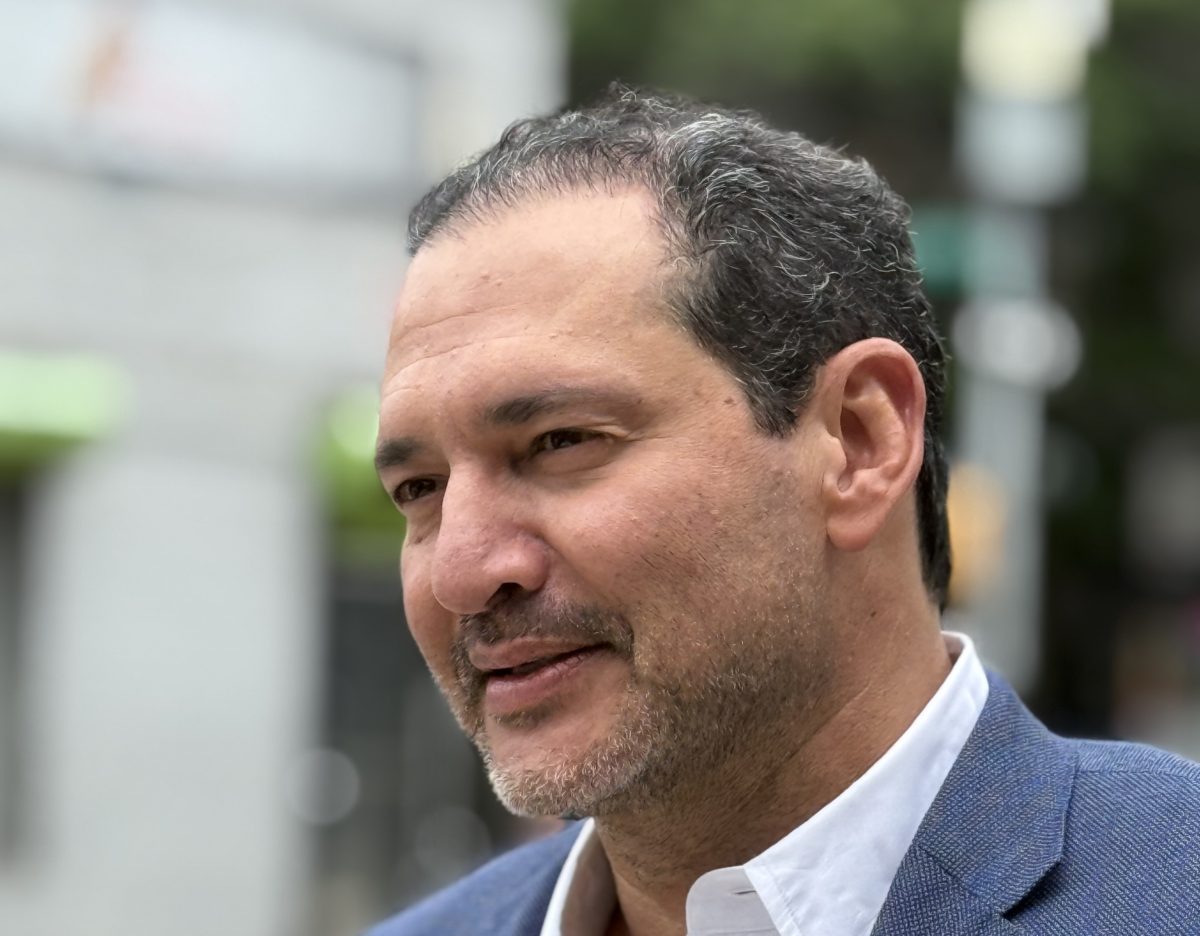
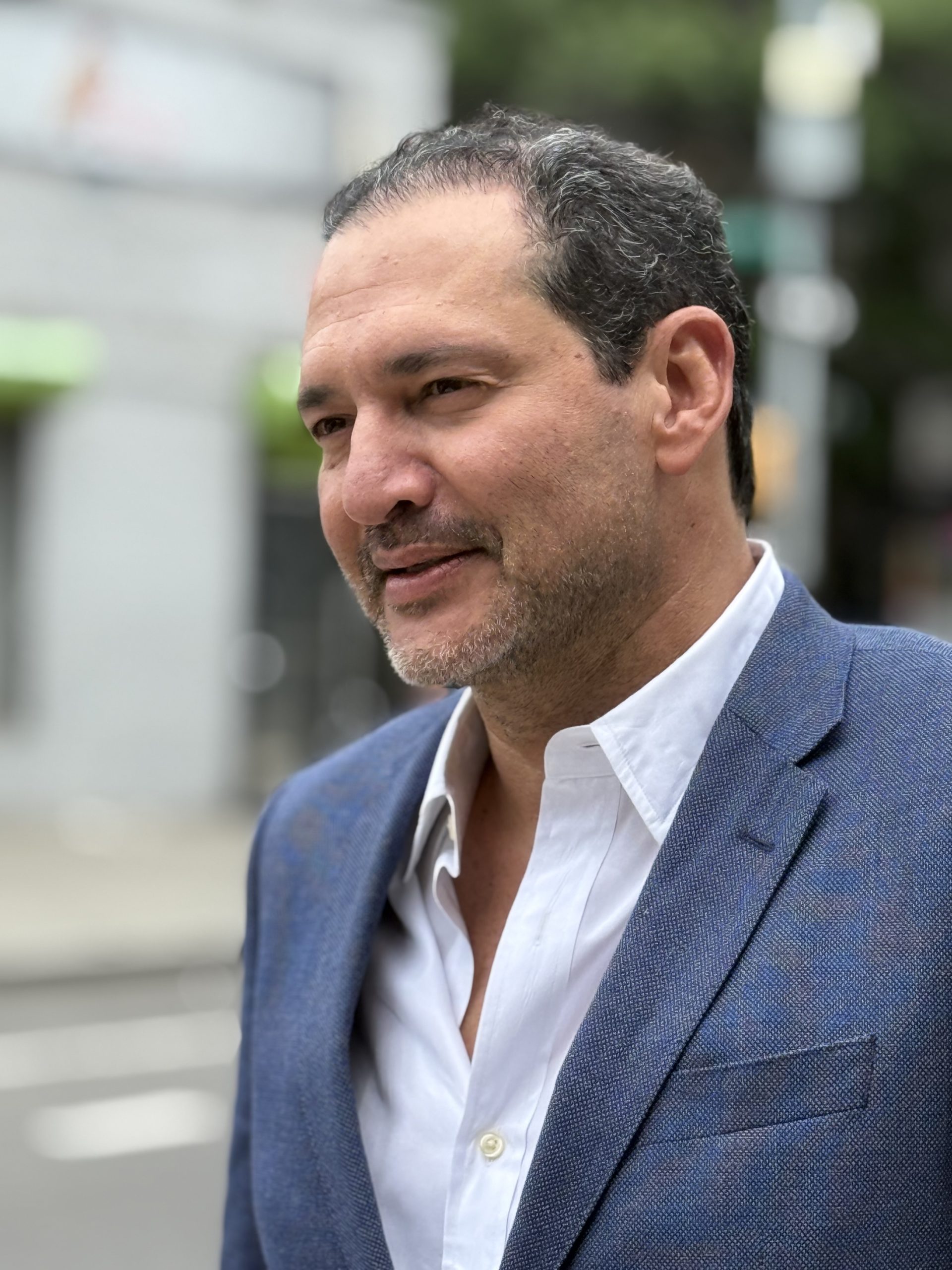
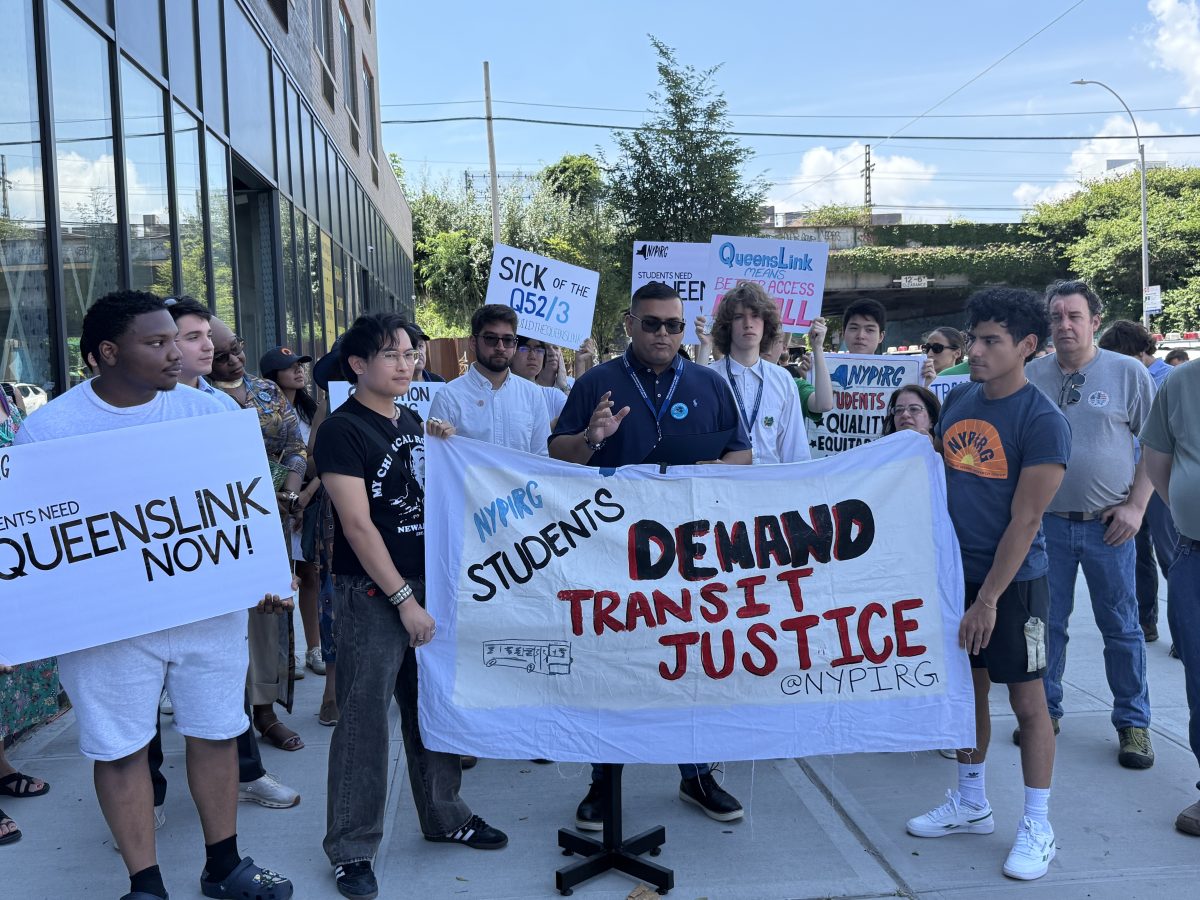
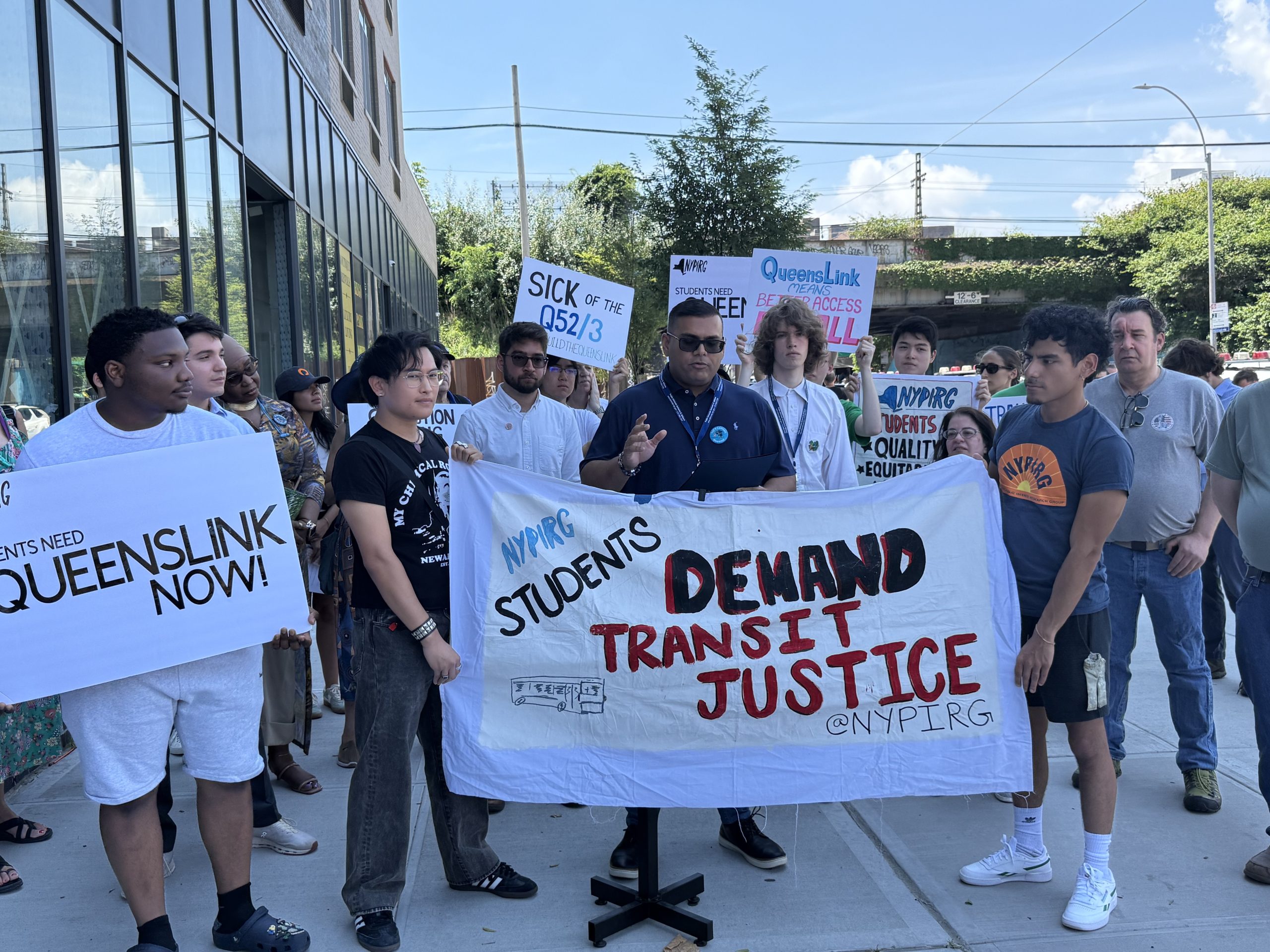
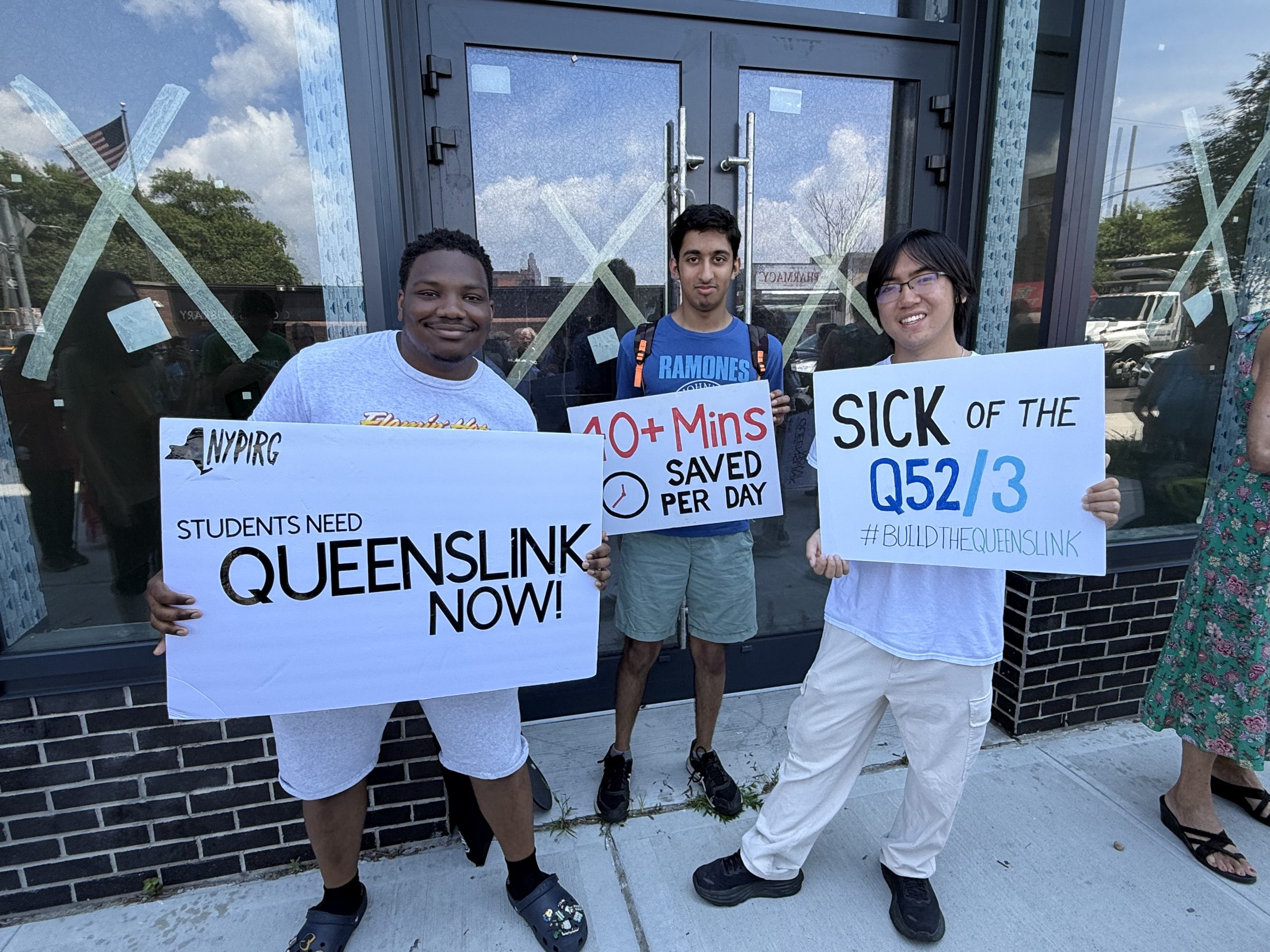
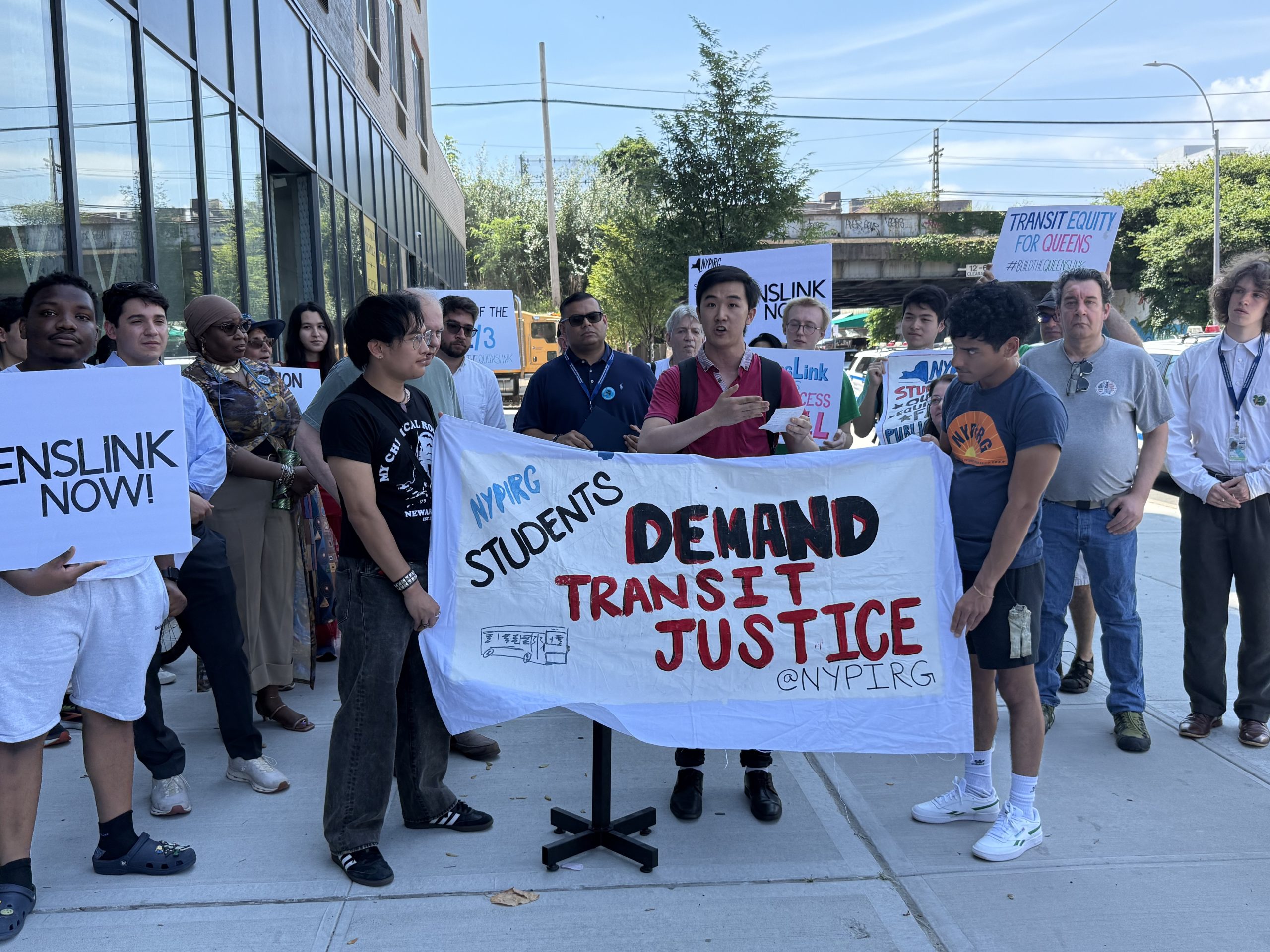
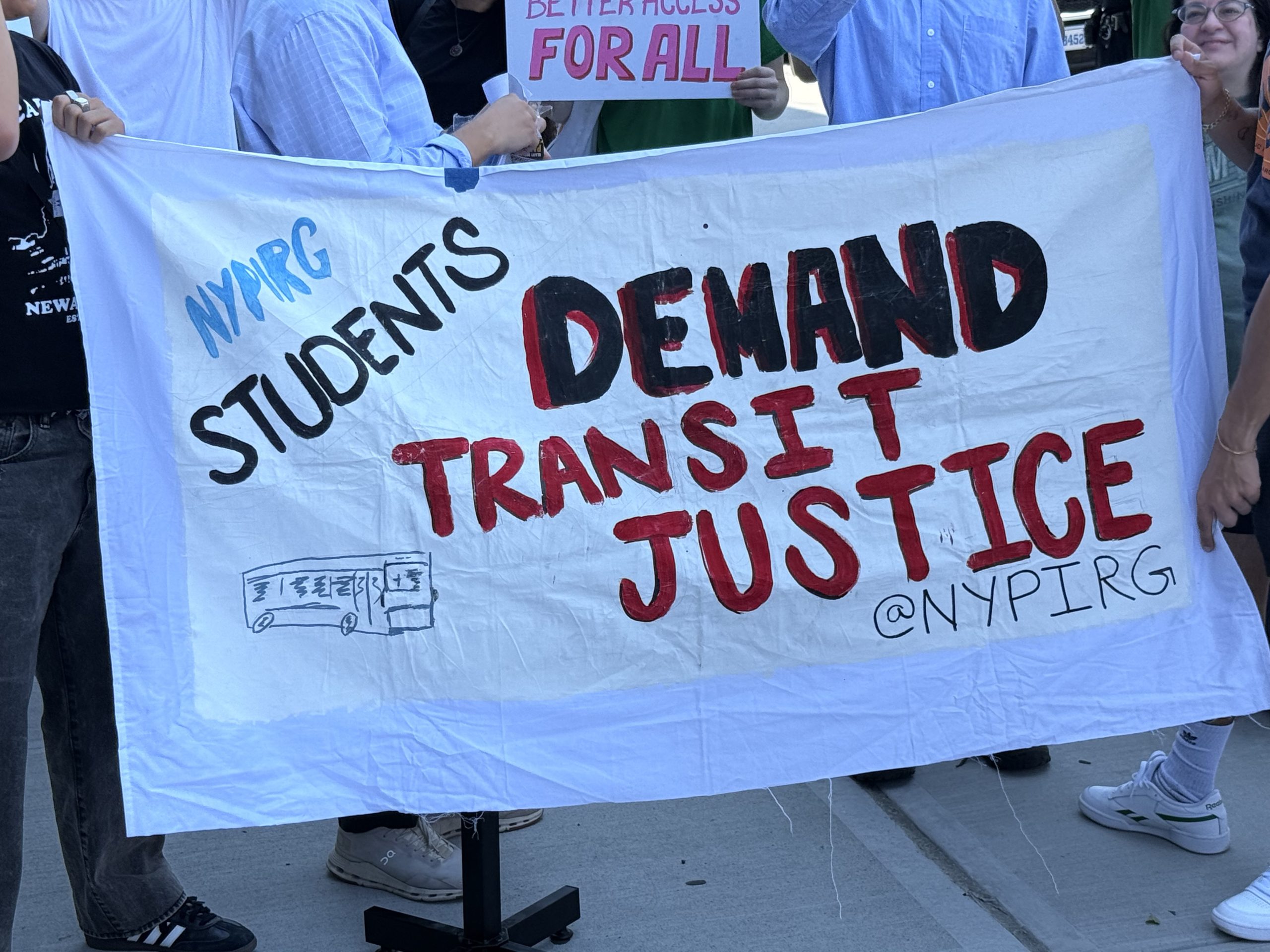 The initiative received a boost earlier this year when the New York State Senate included $10 million in its 2025 budget proposal to fund an environmental review of QueensLink. This move followed a sustained grassroots campaign led by QueensLink organizers, who mobilized supporters to send thousands of letters to elected officials urging support. Six state senators and seven assemblymembers signed on in favor of the project.
The initiative received a boost earlier this year when the New York State Senate included $10 million in its 2025 budget proposal to fund an environmental review of QueensLink. This move followed a sustained grassroots campaign led by QueensLink organizers, who mobilized supporters to send thousands of letters to elected officials urging support. Six state senators and seven assemblymembers signed on in favor of the project.